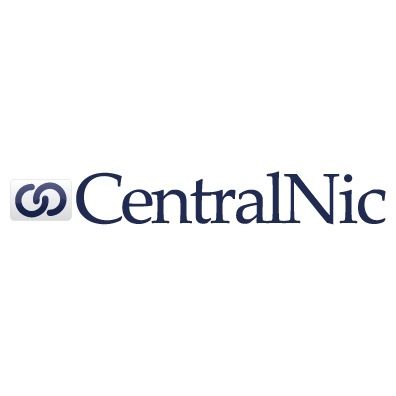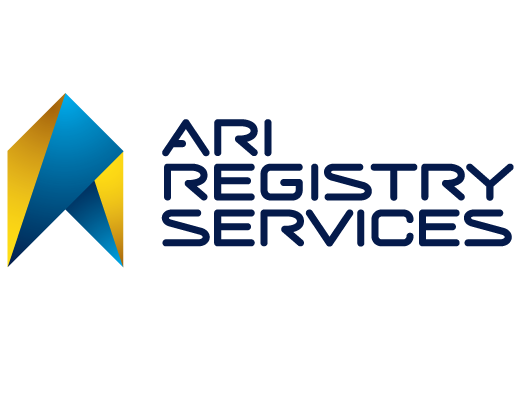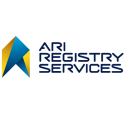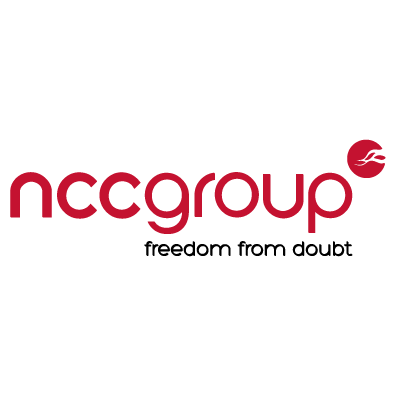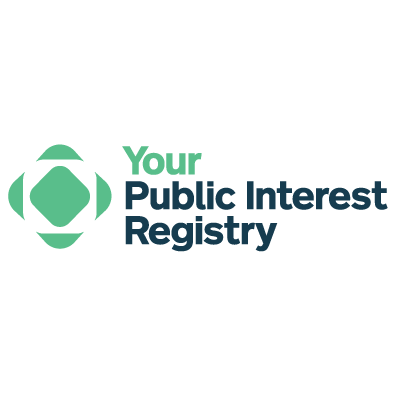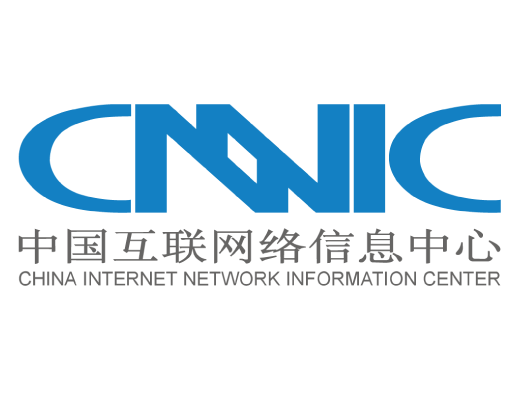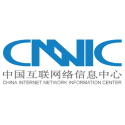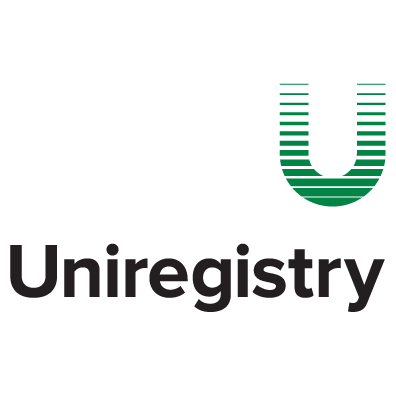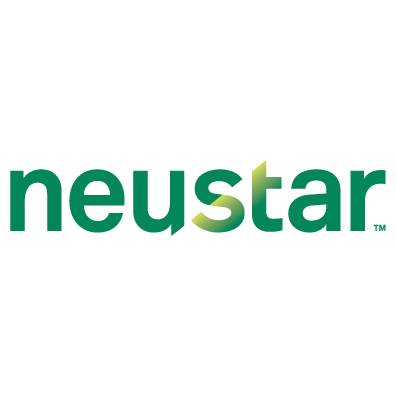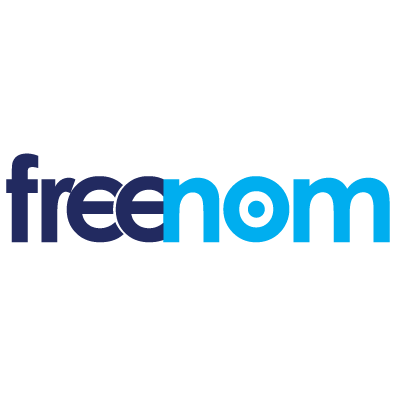GNSO Council Meeting | Minutes
The meeting started at 13:00 Singapore time (05:00 UTC).
http://tinyurl.com/q9vvomd
List of attendees: NCA – Non Voting – Jennifer Wolfe-remote participation
Contracted Parties House
Registrar Stakeholder Group: James Bladel, Volker Greimann, Yoav Keren gTLD Registries Stakeholder Group: Jonathan Robinson, Ching Chiao, Bret Fausett Nominating Committee Appointee (NCA): Thomas Rickert
Non-Contracted Parties House
Commercial Stakeholder Group (CSG): Mikey O'Connor, Osvaldo Novoa, Gabriella Szlak, John Berard, Brian Winterfeldt, Petter Rindforth Non Commercial Stakeholder Group (NCSG): Klaus Stoll, Maria Farrell, David Cake, Avri Doria, Amr Elsadr, Magaly Pazello Nominating Committee Appointee (NCA): Daniel Reed
GNSO Council Liaisons/Observers:
Alan Greenberg – ALAC Liaison
Patrick Myles – ccNSO Observer
ICANN Staff
David Olive – VP Policy Development
Marika Konings – Senior Policy Director
Rob Hoggarth – Senior Policy Director
Mary Wong – Senior Policy Director
Julie Hedlund – Policy Director
Berry Cobb – Policy consultant
Lars Hoffmann – Policy Analyst
Glen de Saint Géry – GNSO Secretariat
Audio Stream Archive EN
Audio Stream Archive ES
Audio Stream Archive FR
Audio Stream Archive ZH
Item 1: Administrative matters
1.1 Roll Call
1.2 Statement of interest updates
1.3 Review/amend the Agenda
1.4. Note the status of minutes for the previous Council meeting per the GNSO Operating Procedures:
Minutes of the GNSO Council meeting 27 February 2014 will be posted as approved in March 2014
Item 2: Opening Remarks / Review of Projects & Action List
Council members are encouraged to review the Projects List and Action List before each Council meeting.
Item 3: Consent agenda
Council Confirmed the Chair and Co-Chairs for the Data and Metrics for Policy Making non-PDP working group namely Mikey O'Connor (ISPCP) as Chair as well as Rudy Vansnick (NPOC), Jonathan Zuck (IPC) and Olevie Kouami (NPOC) as Co-Chairs. Council further confirmed that the GNSO Liaison for the Data and Metrics for Policy Making non-PDP working group is Klaus Stoll (NPOC).
Item 4: MOTION – To approve the charter for a cross community working group to develop a finalised framework of operating principles for future CWGs
John Berard, seconded by Mikey O'Connor proposed a motion to approve the charter for a Cross Community Working Group to Develop a Finalized Framework of Operating Principles for Future Cross Community Working Groups.
WHEREAS
-
In March 2012 the GNSO Council approved a set of initial draft principles relating to the formation and operation of cross community working groups (CWGs) and directed ICANN staff to solicit feedback on the principles from the other ICANN Supporting Organizations and Advisory Committees (SO/ACs);
-
In June 2013 the ccNSO provided detailed feedback suggesting further clarifications and possible additions to the initial draft principles;
-
In October 2013 the GNSO Council approved the formation of a Drafting Team to develop a Charter for a new CWG to take forward and synthesize the initial work of the GNSO and the ccNSO feedback, and develop a final framework of operating principles that can function effectively across all SO/ACs relating to the formation, operation, decision making and termination of future CWGs (the "Final Framework");
-
The Drafting Team, co-chaired by the ccNSO and GNSO, has now completed its work on a proposed draft Charter for this new CWG.
RESOLVED,
-
The GNSO Council approves the Charter and appoints Avri Doria as the GNSO Council liaison to the CWG that will develop the Final Framework.
-
The GNSO will collaborate with the other SOs and ACs to issue a call for volunteers for the CWG, each in accordance with its own rules.
-
Until the CWG selects its co-chairs for the WG, the Co-Chairs of the Drafting Team shall serve as the interim co-chairs of the CWG.
The motion carried unanimously, all council members were present and voted in favour.
Item 5: MOTION – To adopt the charter for a cross community working group to develop a framework for the use of country and territory names as TLDs
John Berard, seconded by Osvaldo Novoa and as amended by David Cake proposed a motion to approve a charter for a Cross-Community Working Group to develop a framework for the use of Country and Territory names as TLDs (UCTN WG)
Whereas,
-
The ccNSO Study group on the use of Names for Country and Territory published its Final Report in September 2013 (http://ccnso.icann.org/node/42227). The first of the two recommendations of the Study Group to the ccNSO Council was to establish a cross community working group to:
- Further review the current status of representations of country and territory names, as they exist under current ICANN policies, guidelines and procedures;
- Provide advice regarding the feasibility of developing a consistent and uniform definitional framework that could be applicable across the respective SOs and ACs; and
- Should such a framework be deemed feasible, provide detailed advice as to the content of the framework.
-
The ccNSO Council adopted the recommendations and, as the objective of the proposed Working Group is considered to be of common interest to the broader community, the GNSO, in addition to other Supporting Organisations (SOs), Advisory Committees (ACs) and others, was invited to participate in the working group on equal footing.
-
The ccNSO submitted a proposed charter [include link] for this Cross-Community Working Group, which the GNSO Council has reviewed and discussed.
RESOLVED,
-
The GNSO Council approves the Charter http://gnso.icann.org/en/drafts/unct-framework-14mar14-en.pdf and appoints Gabriela Szlak and Brian Winterfeldt as the GNSO Council liaison to the Cross-Community Working Group to advice on the feasibility of a framework for the use of Country and Territory names as TLDs, and develop such a framework if deemed feasible.
-
The GNSO will collaborate with the other SOs and ACs to issue a call for volunteers for this CWG, each in accordance with its own rules.
The motion carried unanimously, all council members were present and voted in favour.
Item 6: MOTION – To approve the Charter for a GAC-GNSO Consultation Group on GAC Early Engagement in GNSO Policy Development Processes
Mikey O'Connor seconded by Amr Elsadr proposed the charter for the GAC-GNSO Consultation Group on GAC Early Engagement in the GNSO Policy Development Process
WHEREAS
-
There is wide agreement on the need to engage the GAC early within the GNSO policy development process;
-
This issue has been identified by:
- GAC-Board Joint Working Group (JWG)
- Accountability and Transparency Review Team (ATRT1)
- Board-GAC Recommendation Implementation Working Group (BGRI-WG)
- Accountability and Transparency Review Team (ATRT2);
-
The GNSO Council and the GAC jointly formed a Consultation Group to begin work on this topic in November 2013;
-
The Consultation Group, co-chaired by the GAC and GNSO, has now completed its work on a proposed draft Charter for this new Consultation Group (see http://gnso.icann.org/en/drafts/gac-charter-19mar14-en.pdf).
RESOLVED,
- The GNSO Council approves the Charter (see http://gnso.icann.org/en/drafts/gac-charter-19mar14-en.pdf) and appoints Mikey O'Connor as the GNSO Council liaison to the Consultation Group.
The motion carried unanimously, all council members were present and voted in favour.
Item 7: MOTION – To close the Joint IDN Working Group and next steps for certain IDN-related Issues
Jonathan Robinson, seconded by Volker Greimann proposed a motion to close the Joint IDN Working Group and propose next steps for certain IDN-related Issues
WHEREAS
-
The Joint IDN Working Group (JIG) was chartered by the ccNSO and GNSO Councils in 2009 to discuss issues of common interest between the two Supporting Organizations in relation to Internationalized Domain Names (IDNs), in particular, IDN top-level domains (TLDs). The charter was extended in 2010, after the adoption of the IDN ccTLD Fast Track Implementation Plan. ;
-
The JIG identified three issues of common interest, viz. single character IDN TLDs, IDN Variant TLDs, and Universal Acceptance of IDN TLDs;
-
On single character IDN TLDs, the JIG's Final Report recommending that these be delegated in the New gTLD Program and the IDN ccTLD Fast Track Program was approved by the ccNSO and GNSO Councils, and sent to the ICANN Board in May 2011; the JIG prepared a follow-up letter for the ccNSO and GNSO Councils, which after adoption was jointly sent to the ICANN Board in February 2012;
-
On IDN Variant TLDs, the JIG published an Initial Report in March 2011, and ICANN has launched an IDN Variant TLD Program to develop solutions to ensure a secure and stable delegation of IDN Variant TLDs;
-
On Universal Acceptance of IDN TLDs, the JIG published its Final Report in November 2013, and ICANN will be launching a project to facilitate universal acceptance of all TLDs at the ICANN meeting in Singapore;
-
In November 2013, recognizing that further work needed to be done in relation to IDNs, in particular IDN variants and universal acceptance of IDNs, the ccNSO and GNSO Councils requested that the JIG put forward suggestions on how to deal with these issues and deliver these suggestions to the Councils by the ICANN Singapore Meetings in March 2014.
-
Members of the JIG support the ICANN staff recommendations that the ccNSO and GNSO Councils should each continue to monitor ICANN's community efforts to resolve issues relating to single character IDN TLDs, IDN Variant TLDs and Universal Acceptance of All TLDs (including IDN TLDs).
RESOLVED,
-
The GNSO Council believes that in view of the ongoing community work at ICANN on these issues the JIG may now be closed, and will terminate the extension of the JIG as outlined in the charter.
-
The GNSO Council will continue to monitor the progress of the various community-based efforts to resolve the issues raised by the JIG, and will evaluate the need for any further policy work on a periodic basis; and
-
The GNSO Council thanks the JIG for all its hard work in ensuring that solutions to these important issues are developed through community-based efforts;
The motion carried unanimously, all council members were present and voted in favour.
Item 8: Motion to Adopt Revised GNSO Operating Procedures to Address Resubmission of a Motion and Working Group Self Assessment
Avri Doria, seconded by Mikey O'Connor proposed a motion for the GNSO Operating Procedures to Address the Resubmission of a Motion and the Self-Assessment of a Working Group
WHEREAS:
-
The GNSO Council has determined that:
-
the current GNSO Operating Procedures do not contain a specific provision on the possibility of resubmitting a motion for voting by the GNSO Council; and
-
the current GNSO Working Group Guidelines, which form Annex I of the GNSO Operating Procedures, do not contain a mechanism for Working Groups (WGs) to self-assess their work.
-
-
The GNSO Council requested that the Standing Committee on Improvements Implementation (SCI) should consider whether there should be a modification to the GNSO Council Operating Procedures to address the issue of the resubmission of a motion and to develop a survey that WGs could use to perform a self-assessment once their work is complete.
-
Accordingly, the SCI developed procedures to be inserted in Section 4.3 (Motions and Votes) of the GNSO Operating Procedures that provide for the resubmission of a motion to the GNSO Council for consideration at a subsequent meeting of the Council, if three criteria are met:
-
providing of an explanation for the resubmission;
-
timely publication of the resubmitted motion; and
-
seconding of the resubmitted motion by a Councilor from each of the two GNSO Houses.
The proposed new procedures also include limitations and exceptions for the resubmission of a motion concerning the timing of its submission, disallowing any material changes to the original motion, and clarifying that a previously-submitted motion not voted upon by the GNSO Council is considered a new motion (and not resubmitted) if it is brought before the GNSO Council again.
-
-
In addition, the SCI developed and tested a WG self-assessment questionnaire, as a result of which the SCI is recommending that procedures for administering the self-assessment be added as a new Section 7.0 to the GNSO Working Group Guidelines, which form Annex I of the GNSO Operating Procedures.
-
The revised GNSO Operating Procedures, including the proposed additions to the Working Group Guidelines, were put out for public comment for a period of a minimum of 21 days beginning on 10 February 2014 and ending on 03 March 2014 (see http://www.icann.org/en/news/public-comment/gnso-op-procedures-10feb14-en.htm), as required by the ICANN Bylaws.
-
As there were no comments received in the public forum the SCI deemed that no further changes were necessary nor was a public comment reply period needed.
RESOLVED
-
The GNSO Council adopts the revised Operating Procedures including the new provisions concerning the resubmission of a motion and a Working Group self-assessment – see
http://gnso.icann.org/en/drafts/op-procedures-12mar14-en.pdf
- The GNSO Council instructs ICANN staff to post the new version of the GNSO Operating Procedures, effective immediately upon adoption.
The motion carried unanimously, all council members were present and voted in favour.
It was noted that the Standing Committee on Improvements Implementation (SCI) exemplifies a rigorous process because it will not advance a proposal that does not have unanimous consensus.
Item 9: DISCUSSION – Internet Governance Issues
Jonathan Robinson in his opening remarks emphasised that the topics, Internet Governance Ecosystem and the transition of stewardship of the IANA function from the US government, are on the agenda to provide the Council with an opportunity for discussion about how these impact the Council's role and work, mindful of its scope and remit, and what action the Council should or could be taking within the GNSO to help ensure a truly consensus-driven, multi-stakeholder approach.
Highlights from the discussion which included contributions from Councillors and members of the audience:
- Work undertaken on this must be done with rigour: process, how can we do it; result, what should we do it?
- The whole multi-stakeholder community should define the framework and come together in the next few weeks to develop a process where the options can be examined and evaluated, making sure that the key principles like security, stability, resiliency are met and making sure there are no new risks added to a system that is already working. "We don't have to have one big working group. We can have multiple working groups for the different elements of the IANA functions because they really are very different."
- There are two phases where the Council should be heard; early in the process, considering key principles to the transition and the measures to judge the success of the IANA transition and at the end of the transition, to judge the outcome based on the principles that were articulated earlier.
- In the discussions about the IANA transition, the Council may want to make sure that important factors are heard from different voices that are equal round the discussion table rather than have one diluted GNSO voice.
- The GNSO should work as closely as possible with the ccNSO on this topic.
- Action needs to be taken rapidly given the tight schedule, 27 March 2014 and the closely approaching NetMundial conference in April in Brazil.
- The Council has processes in place that can be used as structures to move the work along.
- The group needs professional leadership/project administrator and ICANN could be called upon in collaboration or consultation with the community to find such a person and pay them if necessary.
- It was suggested that during the public forum, Jonathan Robinson, as the GNSO chair, requests the reconsideration of the timeline, by adding on two weeks.
Item 10: DISCUSSION – Data retention waiver and the apparent conflict of national data protection laws with the 2013 Registrar Accreditation Agreement
James Bladel provided the following background to the agenda item:
The new 2013 registrar accreditation agreement has a data retention specification that requires registrars to retain specific data regarding domain name registrations throughout the life of a domain name and in some cases for a period after the domain name is no longer active at that registrar. It was anticipated during the drafting of the agreement that it could cause problems in some jurisdictions with data privacy laws so the specification contains a mechanism by which an affected registrar could apply for a waiver of this obligation. The Article 29 working group (of the European Commission) specifically noted their concerns with this requirement, and various registrars submitted a request for a waiver under this specification. Going back to November last year, a few waiver requests have been granted, but most are in 'pending' status and consequently the registrar is unable to execute the new agreement and unable to participate in the launch of new gTLDs.
This is a contentious issue for the affected registrars and there is a concern that the issue is proliferating so possibly affecting registrars outside of the European Union. "We heard yesterday from a particular board member that various jurisdictions in Asia are also examining this requirement and looking at data protection laws as well." There is a practical concern on the part of registrars as well as a principled concern raised from other areas of the community as to how ICANN reconciles conflicts between its commercial agreements with contracted parties and the differing requirements and obligations under various jurisdictions' data privacy laws. This is a much larger question that the Registrars want to raise. This agenda item is more to highlight the issue, raise awareness of recent discussions and broaden the conversation to other interested members of the community to make sure that there is adequate intake of all the different perspectives on this issue, rather than take any decisions. It is causing a block to many registrars' ability to participate in the new gTLD launch and attempts are being made to look for potential remedies for staff and registrars to address this immediate question as well as provide guidance to address these issues going forward.
Discussion highlights:
- Concern was expressed that 1) ICANN's handling of the waiver requests violated national privacy laws and 2) about the amount of time that it is taking to come to any resolution.
- A suggestion was made that Council sends a message to ICANN requesting a waiver of four months in total which would be adequate time consisting of three months for further discussions with ICANN plus one month, needed for the waivers to be put out for public comment.
- Michele Neylon, chair of the Registrar Stakeholder Group strongly encouraged the Council to add this topic as a full agenda item for the next Council meeting and thanked Council for the current opportunity to discuss the issue.
- It was further suggested that Council, at the next meeting prepare and vote on a resolution to advise and encourage ICANN compliance to stop compliance on this particular issue until the issue as a whole is dealt with.
- However, caution was expressed by the IPC about setting a precedent regarding the suspension of enforcement of a contract, where contracted parties who negotiate the contract with ICANN would direct staff to not enforce part of a contract.
- Similar caution about Council putting forward a motion was expressed by the ISPCP.
- It was suggested that the legal advice ICANN staff have requested be made public and shared with all.
- Not only the Registrars are concerned by this issue, it reaches far afield to the other constituencies, stakeholder groups and registrants.
Jonathan Robinson concluded by saying that there had been a comprehensive set of inputs and that the issue had been well aired.
Item 11: DISCUSSION – GNSO Engagement with the work of the ICANN Strategy Panels
In the interest of time there was no discussion on this agenda item.
Item 12: UPDATE & DISCUSSION – Forthcoming review of the GNSO
Jennifer Wolfe provided the Council with an update on the forthcoming review of the GNSO. The review will focus on organizational effectiveness. The review process will begin in May 2014 and run through January 2015. That will include selecting an outside auditor, the independent 360 review as well as an internal review by survey, the final report and recommendations. Once that is completed the implementation phase of the recommendations will move forward in February 2015.
Item 13: Open Microphone
Gunela Astbrink from ISOC Australia informed the council about a new ad hoc At-Large accessibility task force which is examining accessibility for people with disability. There are one billion people across the world who have a disability and 80% live in developing countries.
The objectives of the task force are building a culture of accessibility within ICANN, increasing web accessibility, and ensuring minimal barriers to ICANN processes and practices.
Item 14: Any Other Business
Jonathan Robinson reminded the Council of the additional Council meeting Thursday, 10 April 2014 at 14:00 UTC to confirm the Non Contracted Parties House selected candidate for the ICANN Board Seat 14.
Jonathan Robinson adjourned the GNSO Council meeting and thanked everyone for their participation.
The meeting was adjourned at 15:00 Singapore time (07:00 UTC).
The next GNSO Council meeting will take place on Thursday, 10 April 2014 at 14:00 UTC.
See: Calendar
http://gnso.icann.org/en/group-activities/calendar#apr
http://tinyurl.com/mfscjuu
This material is associated with the following sessions:
| Title | Date | Language |
|---|---|---|
| GNSO Council Meeting | 26 Mar 2014 - 13:00 to 15:00 +08 | English |





